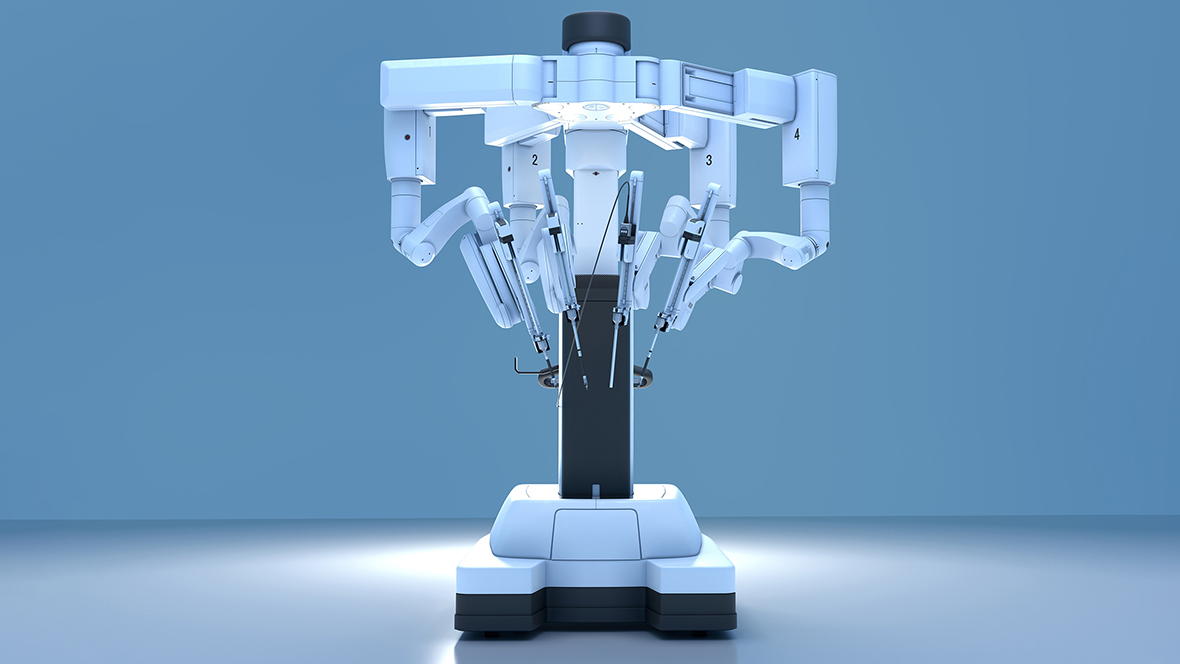Montefiore's Abdominal Wall Program
Offering groundbreaking, integrated care to patients with complex hernias and abdominal wall issues
Montefiore’s Abdominal Wall Program provides comprehensive and integrated care to patients experiencing abdominal wall issues, including multiple types of hernias. Our team, which includes nationally renowned experts, works together to provide specialized, cutting-edge treatment that achieves better outcomes, even for patients with the most severe hernias. The program is also heavily involved in research and education that greatly improves the awareness and treatment of abdominal wall defects. With approximately 5 percent of the population expected to experience a defect of the abdominal wall during their lifetime, the need for an initiative like this is paramount.
A Comprehensive Hernia Center
Montefiore’s comprehensive Hernia Center is part of the Abdominal Wall Program. We are one of the few academic hospitals the New York City region to offer patient-centered, personalized hernia care. At our conveniently located facility, all aspects of treatment are offered, including rehabilitation services after surgery.
Our team treats patients with basic and complex abdominal wall hernias using a variety of surgical techniques, including laparoscopic and robotic surgery as well as as all aspects of preoperative optimization and postsurgical rehabilitation. At the Hernia Center, abdominal wall surgeons work collaboratively with other specialties—such as nutrition, plastic surgery, wound and ostomy care, and bariatric surgery—to customize treatment and follow-up care that helps patients to recover with minimal pain and complications.

The abdominal wall hernias we treat include these:
Inguinal hernias are most common in male patients. These hernias may be congenital, or they may be caused due to aging and the weakening of tissue. With an inguinal hernia, tissue from the intestine or other organs protrudes through a weak spot in the abdominal muscles. These hernias are most often repaired using minimally invasive surgery. Patients may be discharged on the same day and can return to normal activities within the same week.
Ventral hernias may occur in weak spots in the abdominal wall, most commonly at the umbilical area, when abdominal tissue or part of the intestine pushes through the weakened area, which can result in pain and other complications for the patient. These types of hernias require surgery for treatment, and surgical options can include open surgery or laparoscopic surgery.
Incisional hernias occur when an incision from a prior surgery does not properly heal. The incision is a weak spot, and with time and pressure, the area can become inflamed. These types of hernias will often require the insertion of surgical mesh in order to correct the issue. When possible, we will do this procedure using the precision of robotic surgery, which leads to a faster recovery time for the patient.
Hiatal hernias occur when the upper part of the stomach bulges through the diaphragm, which separates the abdomen from the chest. Patients with hiatal hernias may have heartburn and issues with food regurgitation. For more serious cases, treatment may require a surgical procedure to correct the condition by repositioning the stomach inside the abdomen.
Pioneering the Most Advanced Procedures Through Extensive Research
We work continuously to improve treatment for patients with hernias and other abdominal wall issues through the research we conduct. We draw on the expertise of specialists and researchers across the health system, and we actively gather data from the more than 1,000 hernia surgeries performed at Montefiore each year.
Our research focuses on the study of instruments and techniques for surgical procedures, primarily closure technologies and techniques that reduce pain and infection; biomaterials and meshes and their interaction with wound healing; and patients’ quality of life after surgery. We aim for less invasive procedures with long term results, and to improve the quality of hernia care by enhancing outcomes through patient-centered data collection and collaborative learning.

Providing
State-of-the-art Surgical Training
The Abdominal Wall Program provides training for fellows, residents and students at our Albert Einstein College of Medicine. Our education program covers the full range of abdominal wall issues, and it provides students with a foundation in surgical and nonsurgical approaches to treatment. Our rigorous education program features our own specialized curriculum, didactic sessions, clinical case discussions, technique videos, live surgeries, workshops, symposia and a hands-on lab. We also host training courses designed for physicians from the international community, focusing on best practices, advanced surgical techniques and surgical alternatives.

To schedule an appointment or refer a patient, please call
718-920-4800.
Meet our surgeons in the Abdominal Wall Program.
Appointments are available at:
Montefiore Einstein Campus
1825 Eastchester Road
Bronx, NY 10461

